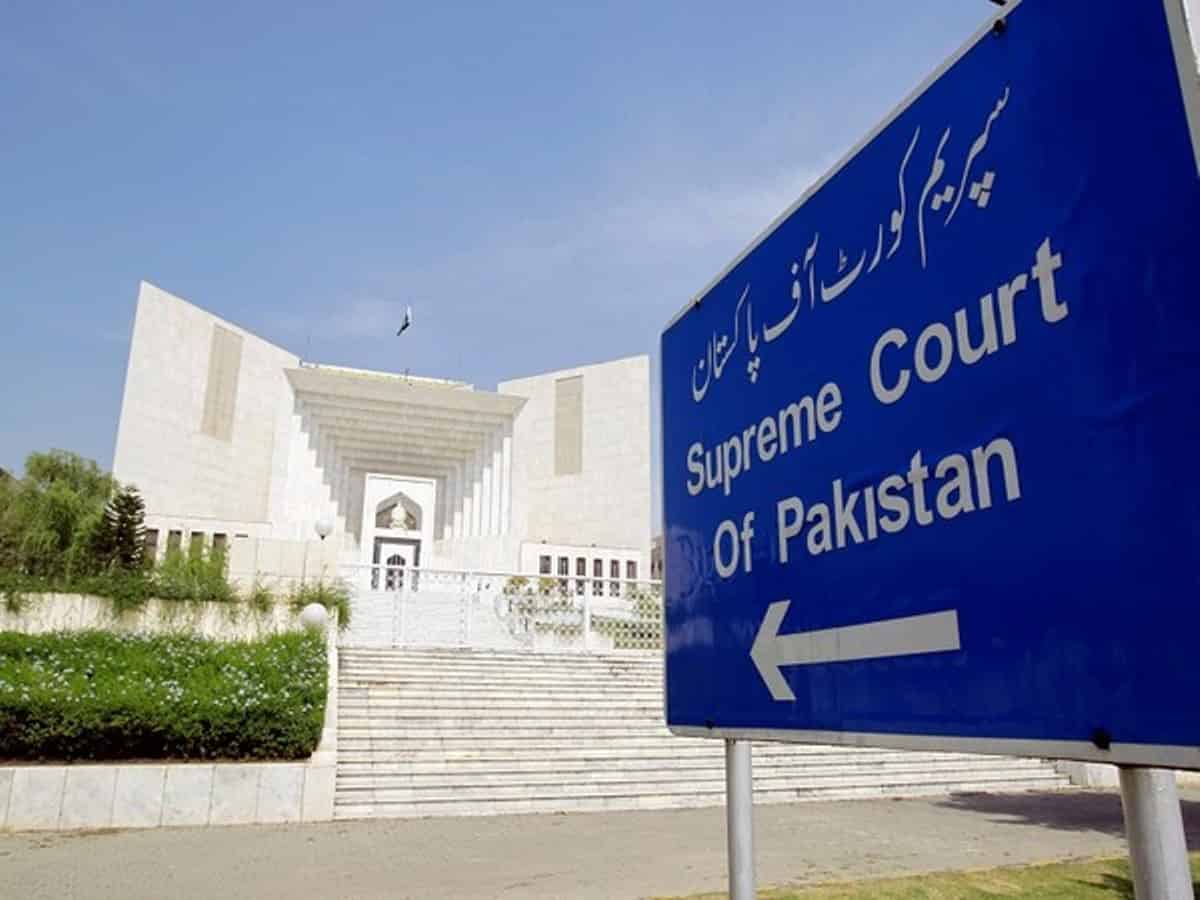
Islamabad: The Supreme Court of Pakistan on Saturday rebuked the top election body and ordered it to implement its verdict on reserved seats, a decision that is likely to benefit the party led by jailed former prime minister Imran Khan.
The apex court order is a major setback to Prime Minister Shehbaz Sharif’s ruling coalition as it will potentially make Khan’s Pakistan Tehreek-e-Insaf (PTI) party as the single largest in both houses of Parliament after the February 8 general elections.
The order coincides with the reported planning of the government to introduce a constitutional amendment for which a two-third majority is required.
If the Supreme Court order is implemented in letter and spirit, the PTI may emerge as the largest party in the National Assembly with its seats soaring with the addition of reserved seats.
The ruling Pakistan Muslim League-Nawaz (PML-N) party-led government on July 15 had filed a review petition in the Supreme Court against its decision to allocate reserved seats to PTI.
Earlier, a 13-member full bench of the apex court in a key 8-5 judgment on July 12 ruled that the PTI was eligible for the seats reserved for women and minorities in the National Assembly and provincial assemblies.
The court had also declared PTI as a parliamentary party. Khan, 71, who faces over 200 cases and has been convicted in a few of them, is currently lodged at the Adiala Jail in Rawalpindi.
He had already claimed the February 8 general elections to have witnessed the ‘Mother of All Rigging’ and called his rivals the PML-N and the Pakistan Peoples Party (PPP) as “mandate thieves.”
In the election, both PML-N and PPP individually won fewer seats than 92 won by independent candidates backed by Khan’s PTI. The two parties entered into a post-poll alliance under which the PML-N got the prime minister’s post and the chief ministership of Punjab province while the PPP got the presidential post and the chief ministership in Sindh province.
If the reserved seats are now allotted to the PTI, it will upset the PML-N-PPP apple cart.
Earlier, the July 12 majority judgement explained that 39 out of the 80 members of the national assembly, shown by the Election Commission of Pakistan (ECP) as PTI candidates, belonged to the party, while the 41 independents would have to file duly signed statements before the commission within 15 days as it explained that they contested the February 8 elections as a candidate of a particular political party.
The ECP had subsequently sought clarification on some issues from the court which in its order stated that the clarification sought by the ECP was “nothing more than a contrived device and the adoption of dilatory tactics, adopted to delay, defeat and obstruct implementation of the decision of the court.”
“This cannot be countenanced. Even on the application of elementary principles of law, the application filed by the Election Commission is misconceived,” the top court said.
The court also warned that failure of the ECP to implement the original verdict would have consequences.
“The attempt by the Election Commission to confuse and cloud what is otherwise absolutely clear as a matter of the Constitution and the law must therefore be strongly deprecated,” the apex court said.
“The list required to be issued by the Commission … is nothing more than a ministerial act, for the information and convenience of all concerned, and has no substantive effect. Nonetheless, the continued failure of, and refusal by, the Commission to perform this legally binding obligation may, as noted, have consequences,” the order said, adding, “This obligation must be discharged forthwith.”
The issues of reserved seats propped up soon after the February 8 elections when the PTI-supported independent candidates joined the Sunni Ittehad Council (SIC) but the ECP refused to allot it the reserved seats.
The Peshawar High Court (PHC) had on March 14 rejected the appeal against the ECP ruling.
In April, the SIC filed a petition before the Supreme Court against the PHC judgment, which on May 6 suspended the PHC judgment as well as the March 1 ECP decision to deprive the SIC of seats reserved for women and minorities.
Finally, the apex court on July 12 adjudicated in the favour of PTI and declared it as a party eligible for reserved seats, but the ECP has so far not fully implemented the verdict.



